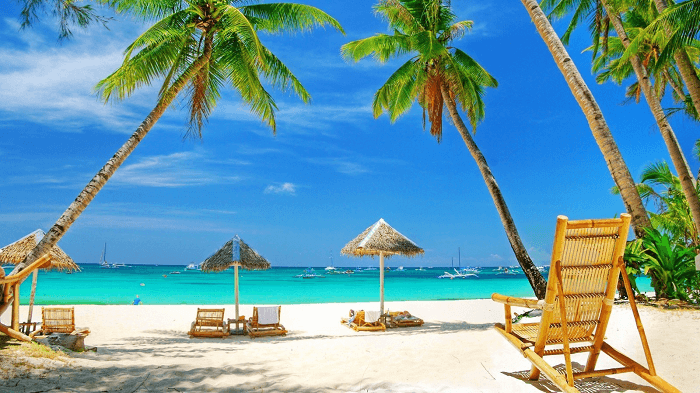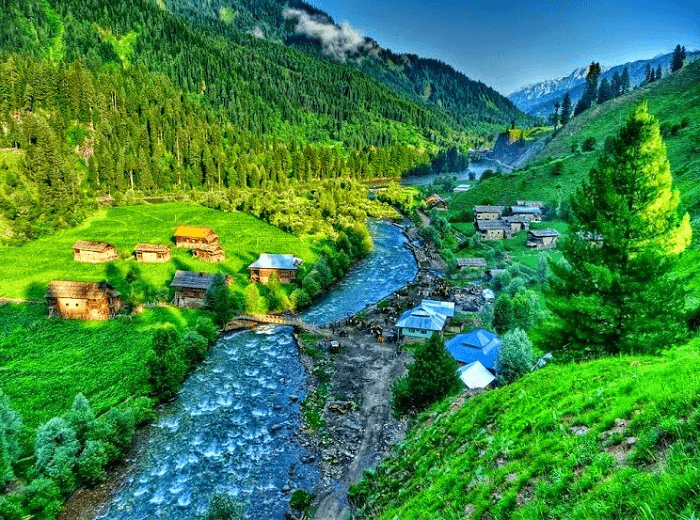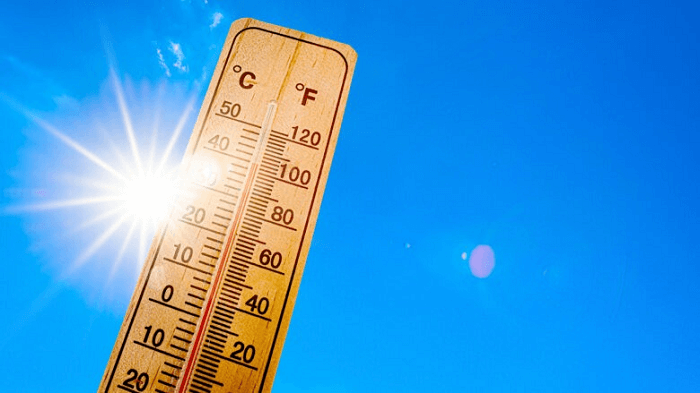Summer SeasonIntroductionSummer is a season of extremes, marked by sweltering heat and humidity, that can be both a source of joy and a cause for concern. For many, the summer season brings the promise of ripe, juicy fruits and vibrant festivals, while for others; it is a time of dehydration, power cuts, and skin problems. Nevertheless, the summer season is an integral part of the way of life around the world, shaping everything from fashion and food to cultures and traditions. In this article, we will explore the various aspects of the summer season and discover how people cope with the heat and enjoy the season's benefits. 
Duration of Summer SeasonThe duration of the summer season can vary depending on the region of the respective country. The duration also varies from one nation to another. In general, the season lasts from April to June, but it can start earlier and end later in some areas. For instance, in the northern and western parts of India, the summer season can start as early as March and last until July. The temperature during this period can reach over 40°C in some parts of the country, making it the hottest time of the year. In contrast, the coastal areas experience a relatively cooler climate due to the sea breeze, which brings a respite from the scorching heat. However, these areas can also experience high humidity levels, which can be uncomfortable for some people. Depending upon the position of the sun around the Earth, some nations experience more heat in summer than others. Several facets of life are significantly impacted by the length of the summer season. For instance, it has an impact on the cost and availability of vegetables and fruits, which are in plentiful supply at the moment. It also affects many festivals and celebrations to some extent. For instance, Indians may experience extreme heat when holidays and celebrations like Holi, Baisakhi, and Ugadi-many of which are connected to the summer-take place. Overall, the duration of the summer season in different countries varies depending on the region and can last for several months. Despite the challenges posed by the extreme heat and humidity, the summer season also brings with it many benefits and plays an important role in the cultural and social fabric of the country. Climate during Summer SeasonThe climate during the summer season can be described as hot and humid. This time of year, temperatures can climb dramatically, especially in the country's north and west, where they frequently reach or surpass 40°C. The high temperature, coupled with high humidity levels, can make it challenging to cope with the heat, especially for people living in urban areas. In addition to the high temperature and humidity, the summer season in most countries is also marked by dust storms and occasional thunderstorms, which can provide some relief from the heat. However, these storms can also cause damage to crops and property and pose a risk to human life. The climate during the summer season has a significant impact on various aspects of life for living beings. For example, it affects the availability and prices of food items, as well as the quality of life of people living in areas with limited access to basic amenities like water and electricity. Despite the challenges posed by the climate during the summer season, people in almost every nation have developed various coping mechanisms to deal with the heat. For instance, in order to remain cool, individuals frequently dress in airy, loose-fitting cotton garments or other breathable materials. They also consume plenty of fluids and take shelter under shade during the hottest parts of the day. The climate during the summer season is mostly hot and humid, and it has a significant impact on the daily lives of people. However, people have learned to adapt to the climate and make the most of the season by enjoying its benefits, such as the availability of fruits and festivals. Advantages of Summer SeasonThe summer season is not just about the scorching heat and humidity; it also brings with it a range of benefits that are enjoyed by people across the country. Here are some of the advantages of the summer season that people in most countries experience: Fruits and Vegetables One of the primary advantages of the summer season is the abundance of fresh fruits and vegetables that become available during this time. 
Mangoes, watermelons, muskmelons, litchis, and papayas are just a few examples of the delicious and nutritious fruits that are harvested during the summer season. Similarly, vegetables like cucumber, bottle gourd, bitter gourd, and okra are also seen in season during this time. Festivals and Celebrations Another advantage of the summer season is the availability of numerous festivals and celebrations that take place during this time. For instance, Holi, Baisakhi, and Ugadi are some of the major festivals that are celebrated during the summer season in India. In Holi, people throw watercolors and play with each other to beat the feeling of scorching heat to some extent. These festivals bring people together and provide a sense of community and belongingness. Tourism The summer season is also a peak season for tourism, as many people take advantage of the school holidays and travel to different parts of the country to explore its natural and cultural treasures. India provides a wide variety of travel opportunities that may be experienced in the summer, from the tranquil beaches in the south to the snow-capped mountains of the north. 
The advantages of the summer season in India are many, and they provide people with opportunities to enjoy the bounty of nature, come together in celebration, and explore the country's rich cultural and natural heritage. Disadvantages of the Summer SeasonWhile the summer season typically brings with it many advantages, it also has some disadvantages that affect people's daily lives. Here are some of the drawbacks of the summer season that people often experience during this time: Heat and Humidity 
The most significant disadvantage of the summer season in most countries is the extreme heat and humidity, which can be uncomfortable and even dangerous for some people. The high temperature and humidity levels can lead to dehydration, heat exhaustion, and heatstroke, particularly for those who are exposed to the sun for extended periods or who work outdoors. Power Cuts Power cuts are a common occurrence during the summer season, especially in areas with high demand for electricity. The high consumption of energy for cooling and other purposes during this time can lead to power outages, which can disrupt daily life and cause inconvenience to people. Due to the high use or demand for electricity, electricity bills also come high during summer. Water Scarcity Water scarcity is another significant problem that people face during the summer season in many nations. The high temperature and humidity levels increase the demand for water, and in many areas, the supply of water is limited or inadequate. This can lead to water shortages, which can affect daily life and lead to health problems. Vector-borne Diseases The summer season is also associated with an increased risk of vector-borne diseases such as dengue, malaria, and chikungunya. The high temperature and humidity levels create a favorable environment for mosquitoes and other disease-carrying insects to breed and thrive. Overall, the disadvantages of the summer season can make it a challenging time for many people. However, by taking necessary precautions and adopting appropriate coping strategies, people can mitigate the negative effects of the season and enjoy its benefits. Coping with the Summer HeatCoping with the summer heat is essential to ensure one's health and well-being during this season. Here are some tips to help cope with the heat: Stay Hydrated 
In order to avoid dehydration during the summer, it is essential to consume lots of fluids. Every day, it is advised to consume at least eight glasses of water. Other fluids such as coconut water, lemonade, and buttermilk can also help keep the body hydrated. Dress Appropriately Wearing light and loose-fitting clothes made of cotton or other breathable fabrics can help keep the body cool during the summer season. It is also advisable to wear hats or use umbrellas to protect oneself from direct exposure to the sun. Stay Indoors during Peak Hours The warmest hours of the day, which are normally from 11 am to 4 pm, should be avoided. If one needs to go out, he/ she should try to stay in the shade or carry an umbrella to get protection from the sun. Eat Light Consuming heavy meals during the summer season can lead to digestive problems and make one feel lethargic. Instead, it is recommended to eat light, fresh, and hydrating foods such as fruits, salads, and vegetables. Use Fans and Air Conditioners Using fans and air conditioners can help cool down the body and provide relief from the heat. It is advisable to set the temperature of the air conditioner between 24-27°C to conserve energy and reduce electricity bills. In addition, it is advisable to avoid going outside immediately after appearing in an air-conditioned temperature. Take Regular Showers Taking regular showers can help keep the body cool and fresh during the summer season. It is advisable to take a shower at least twice a day, particularly before going to bed, to cool down the body and improve sleep quality. By adopting these coping strategies, people can better deal with the summer heat in any country and ensure their well-being during this season. Suitable GamesDespite the negative sides of the summer season, children and adults alike enjoy playing games to beat the heat and stay entertained. Here are some popular games played during the summer season in many countries: Cricket Cricket is called a 'gentlemen sport'. Cricket is the most popular sport in India, England, Australia, etc., and is often played in parks, grounds, and even on the streets during the summer season. It is a fun game that can be played with a small or large group of people. Badminton Badminton is another popular sport played worldwide during the summer season. It is a great way to stay active and enjoy the outdoors while also providing a good workout for the body. Water Games 
Water games such as swimming, pool games, and water balloon fights are other popular games played across the world during the summer season. These games provide a fun and refreshing way to cool down and beat the heat. Kabaddi Two teams compete in the traditional Indian sport of kabaddi, in which participants attempt to tag members of the other team while shouting "kabaddi, kabaddi". Both kids and adults like playing this fascinating and engaging game. However, this outdoor sport is usually played in Asian countries like India, Pakistan, Bangladesh, etc. Kho-Kho Kho-Kho is another traditional Indian sport that is popular during the summer season. It is a team sport that involves running and chasing, making it a great way to stay active and build endurance. Indoor Games Indoor games such as carom, chess, and Ludo are also popular during the summer season. These games are a great way to stay entertained while staying indoors and avoiding the heat. While outdoor games can be played in the morning or evening, indoor games are a better option for entertainment during the peak hours of summer to avoid the intense heat. Places to Visit during the Summer SeasonThere are many lovely locations worldwide to visit in the summer to escape from the oppressive heat. One can plan a trip to visit countries like Greece, Canada, Indonesia, France, Mexico, Germany, Colombia, Iceland, Spain, USA, Switzerland, etc., to avoid the heat and enjoy life. Santorini is considered by people from all over the world to be one of the top summer holiday destinations to visit in Greece. Summer Season in IndiaIn India, the summer season usually lasts for a longer period but is believed to be around March to May. However, April, May, and June are relatively warm months in many Indian states compared to other time periods during the year. The weather becomes extremely hot during these months, and the temperature can reach an average of around 32 to 40 degrees centigrade. Places to Visit during the Summer Season in IndiaThe following are a few of the top locations in India to visit in the summer:
ConclusionIn conclusion, the summer season is characterized by high temperatures, humidity, and long sunny days. However, it is also a season of vibrant colors, seasonal fruits and vegetables, and various recreational activities. The duration of the season varies from one region to another across the country, with some regions experiencing more extreme weather conditions than others.
Next TopicWinter Season
|
 For Videos Join Our Youtube Channel: Join Now
For Videos Join Our Youtube Channel: Join Now
Feedback
- Send your Feedback to [email protected]
Help Others, Please Share










